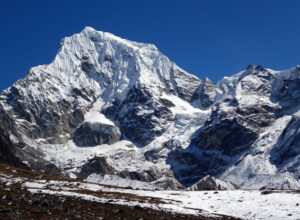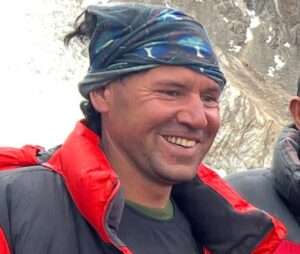It wasn´t the first film festival I took part in. But it felt like a very special one. A friend of mine on the festival circuit had written to me when my film amazingly enough got accepted, that this was an important festival on the anthropological scene. Now that made me a tiny bit nervous, because I have done a documentary which kind of doesn´t belong to any specific genre. It could be current affairs, travel, anthropology or the Middle East. Or all. Or something else. So I knew it wasn´t a film that followed the guidelines of how to make a documentary if you are in to the academic world of visual anthropology. So I was kind of ready that my film would be more criticized than if it would be showed at a Middle Eastern forum, like the Arab Film festival in San Francisco. But, at the same time, getting kind of accepted into the academic world, that hasn´t happened a lot since I started doing what I am doing today. During the last 28 years, it has only happened a handful times and three of them the last three weeks! Lund´s University and the Center For Middle Eastern Studies, Mansfield College at Oxford University and now in Tartu at the World film festival.
My family obligations has made it impossible to go to any other festivals which has accepted the Yemen Documentary, but I was given a few days off by the girls and I really looked forward going to Estonia and the town of Tartu which was hosting the festival with around 60 films to be screened on a variety of subjects. And there were quite a few with a post-Soviet and Eastern background which I really wanted to see. I also looked forward to getting to know other film makers and build up a small network and hopefully get inspired, get new ideas, get educated and fed with enough documentaries to last me for awhile. I even looked forward to the long trip by train, air plane and bus, 11 hours in all, giving me some time to sleep my flu off and give me some free time in mind not involving family life. My only slight concern was that I in mind had this vision fed by my great friends Maryam Ebrahimi and Nima Sarvestani, winners of many doc awards of greatness and this year they got the documentary Emmy, of images of luxury hotels, Hollywood attention and great togetherness among film makers.
I was met at the bus station in Tartu by an English fella I took a liking to immediately, Danny. The English is such an easy group of people to like, especially those outside the isles. On the way to my lodging he told me he had lived in Tartu for seven years and enjoyed life a lot. He was happy to leave England the day Tony Blair decided to join the Americans and invade Iraq and he hadn´t returned since. He liked Tartu and the Estonians because they were down-to-earth, kind and made great friends. he first took me to my luxury hotel, which in reality turned out to be a youth hostel on the fifth floor of a poorly lit building. It was a cozy place as far from a luxury hotel anyone could imagine. I noticed I had some room mates and I have to say, for once I was happy I had the flu and a bad cough. I didn´t want to share this with my room mates, so I later on that day excused myself and found a decent hotel not too far away from the theater where the festival films where shown.
The first film maker I met, an American, talked about how well her screening had gone the previous day and I shared her table at a café near the theater where I was looking forward to seeing my first film. Only once did she ask anything about me and my film, well, only what my film was about and when I answered Yemen, her interest ended, but she filled me in with background of her own work and successful career. A bit in a daze I trotted over to the theater and the first film I saw had been given grants most of us documentary film makers only can dream about. It was called The Silence Of The Flies, directed by Eliezer Arias and dealt with suicide in rural areas in Venezuela. It made such an impression of sadness on me, so I left immediately for the hotel afterwards, walking there in a daze of flu and fever and I didn´t sleep a second that night.
I had to get to the theater by ten a.m the following morning, since the Yemen documentary was due to be screened together with an Israeli directed film called North Into the Mist by father and son Weisbrod. I did have some previous worries about the time, Thursday at 10 in the morning, whether there would be an audience or not, but it was 2/3rds full, mainly by young people who were most likely students. Throughout all films I saw, there were always a good crowd, which is a great sign of a great festival. My flu kept me shivering in the seat for almost two hours until I had to get down onto the stage together with Carlo the moderator from Puerto Rico, who is a teacher of visual anthropology in Tallinn. As I suspected there was a diversity in the questions and as usual, either you like or hate this Yemen film, there´s nothing in between. Most important of all, however, I did make a very good friend with one in the audience, a Georgian director and script writer, Nino, who saved my day with her kindness as regards to my film. As me, she wasn´t trained as a visual anthropologist, which is probably one major reason I thought her film was the best of all I saw.
I saw two interesting documentaries, Butcher Boy and a film about two brothers around Manchester who were dealing with immigration, Black Sheep. Both in a haze of fever and finally one of the films I really wanted to see before coming, a Georgian film called The Ruler, made my day. It is a documentary about a Stalin statue and what to do with it. Superb! I loved every minute of it and decided that was the best way to finish the day, so I decided to go back and sleep in the hope of returning the next day. On my way home I met Nino Chutkerashvili and we talked for an hour about film making and life and it was all I had been looking for! So laid back, humble, intelligent and kind.
The flu was worse next day, so at noon I returned to Tallinn and spend the rest of the day sleeping in another hotel. What a pity. I really liked this film festival. I met Jaanika, one of the organizers on and off, where kind, warm and helpful and there´s no doubt that everything was much better than my Hollywood idea! It is a really laid back festival, where most film makers who are also visual anthropologists know each others from before and are happy to be part of that community. So, yes, it was well worth every cent spent and time consumed and a highlight of this year no doubt!
My short visit to Estonia, 4 days, confirmed my previous suspicion that the country and its inhabitants would be quite Finnish-Scandinavian and this turned out right. Not even the language was a problem. All smooth, controlled and easy. But I am happy I came across that warm Georgian visitor!
Tallin´s old town, which I walked through, was beautiful, but full of tourists. So, Tartu is much more genuine. And the festival a real delight! I hope I one day can return.






